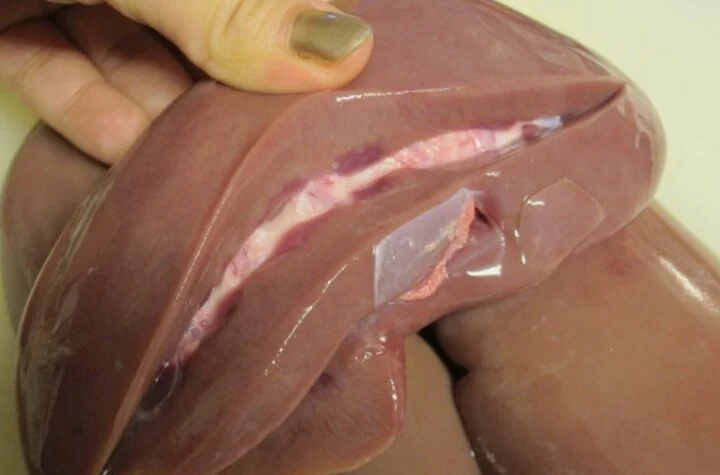Pork kidney dishes are quite popular; however, the unpleasant odor from this ingredient often causes headaches for many people during preparation and cooking.
Secret to Odor-Free Pork Kidneys
Here are some effective tips and methods to eliminate the offensive smell from pork kidneys:
Selecting Pork Kidneys
To choose fresh and safe pork kidneys, first, examine the color. Fresh pork kidneys are usually bright red or pinkish with a purple hue, devoid of any pale spots or strange discolorations.

Before applying the tips to eliminate the odor, make sure to select fresh and safe pork kidneys. (Photo: AdobeStock)
When picked up, a fresh kidney should feel firm and smooth, not too soft or overly stiff. The outer membrane should also be intact and supple, without any scratches or tears.
Additionally, it is advisable to purchase pork kidneys from reputable sources that have quality control stamps from relevant authorities. Avoid buying from unknown suppliers without proper hygiene oversight.
If buying from a market, it’s best to shop in the morning to ensure freshness and avoid afternoon visits when the quality may have deteriorated.
Preliminary Processing of Pork Kidneys
The secret to odor-free pork kidneys lies in meticulous preliminary processing. Wash the kidneys thoroughly with cold water and salt to remove dirt and impurities from the surface, then soak them in a dilute salt solution for about 10-15 minutes to get rid of the initial smell.
The next step in the process of eliminating the odor from pork kidneys is as follows:

Do you know the secret to eliminating the odor from pork kidneys? (Photo: Littleballofmadness)
Peel off the thin outer membrane of the pork kidney. This protective outer layer can be gently scraped off with a sharp knife.
Remove the gallbladder and excess fat: Get rid of the gallbladder and any large chunks of fat attached to the kidney before cooking to reduce the unpleasant smell.
Cut lengthwise and remove the smelly gland: After peeling off the membrane, cut the kidney in half lengthwise; use a thin, sharp knife to carefully remove the entire smelly gland, which is the white portion in the center of the kidney and the main source of the offensive odor.
Rinse the pork kidney thoroughly: Once the smelly gland has been removed, give the kidney a good rinse under clean water to wash away any remaining impurities and debris. If necessary, you can also use vinegar to ensure a thorough clean.
Additional Tips to Eliminate the Odor from Pork Kidneys
To get rid of the unpleasant smell from pork kidneys, you can try the following methods:
Using Lemon Juice or Vinegar
To neutralize the characteristic pungent smell of pork kidneys, rub them with sour vinegar or lemon juice. This step is crucial in both cleaning and reducing the odor of the kidneys. After rubbing, you can soak the kidneys in vinegar for a few minutes before using them.
Using Ginger
Ginger is an excellent natural deodorizer. Crush a small amount of ginger and mix it with the pork kidneys to eliminate the odor and add a delightful flavor to your dish.

Processing pork kidneys to remove the odor is an important step to ensure tasty and safe food. (Photo: Vyxun.blogspot)
Blanching Pork Kidneys in Boiling Water
Bring a pot of water to a boil and briefly dip the pork kidneys into it for about 2-3 minutes. This method effectively cleanses and removes the offensive smell.
Marinating
After preliminary processing and rinsing the pork kidneys, you can cut them into thin, bite-sized slices. For a more appealing presentation, cut the kidneys in a zigzag pattern. Before cooking, marinate the kidneys with a mixture of fish sauce, salt, and pepper to allow the flavors to permeate and further reduce any lingering odor.
When cooking pork kidneys, you can add sugar, salt, and pepper to mask the remaining smell and enhance the flavor. A splash of white wine during cooking can also help achieve a similar effect.
Eliminating the odor from pork kidneys is not a complicated process, but it requires careful attention to each step.
According to VTC News




































